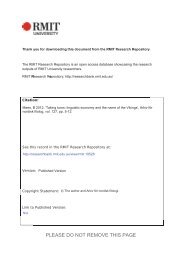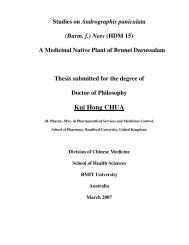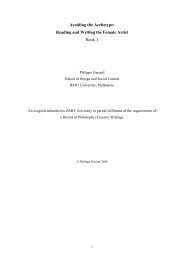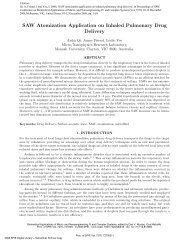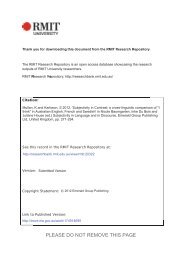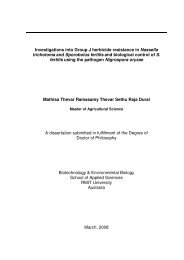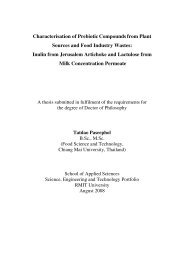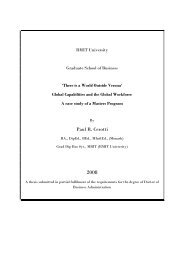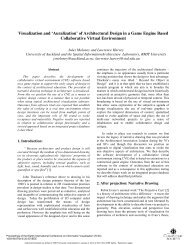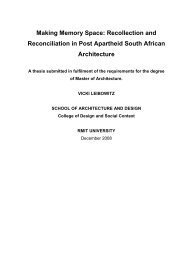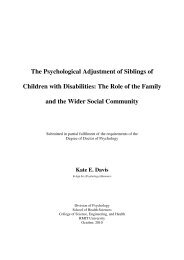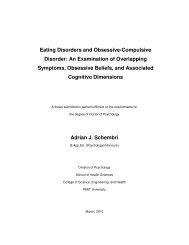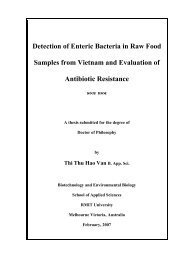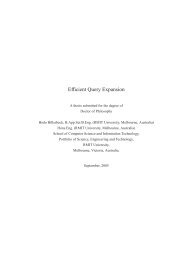Objects in Flux - RMIT Research Repository - RMIT University
Objects in Flux - RMIT Research Repository - RMIT University
Objects in Flux - RMIT Research Repository - RMIT University
You also want an ePaper? Increase the reach of your titles
YUMPU automatically turns print PDFs into web optimized ePapers that Google loves.
<strong>Objects</strong> <strong>in</strong> <strong>Flux</strong><br />
130<br />
cal and commonplace, caus<strong>in</strong>g the producers ‘abstract model’ of use<br />
to appear natural, as if it arises from a natural condition of the object<br />
rather than be<strong>in</strong>g imposed by external forces. Unauthorized use thus<br />
becomes a deviation from the natural order of th<strong>in</strong>gs, a form of deviant<br />
behavior framed as a fall away from logic and common sense. The<br />
consumer, operat<strong>in</strong>g with<strong>in</strong> a territory controlled by others, is forced<br />
to adopt a tactical response, manipulat<strong>in</strong>g and circumvent<strong>in</strong>g control<br />
mechanisms, as they attempt to turn the situation to their own advantage.<br />
While their possible actions are given by the landscape <strong>in</strong> which<br />
they f<strong>in</strong>d themselves, they do not obey the rules of this place. Instead,<br />
they traverse the space creat<strong>in</strong>g a second order, or disorder, overlaid<br />
on the dom<strong>in</strong>ant logic.<br />
Through this research I hope to have shown the transformative potential<br />
that practices of object modification offer. While these practices<br />
are often discussed <strong>in</strong> terms of functional or economic value, my<br />
experiences <strong>in</strong> the field present an alternate story. Rather than be<strong>in</strong>g<br />
orientated toward productive outcomes, practices of object modification<br />
privilege processes of exploration for their own sake. The<br />
transformative potential that these practices offer is both material and<br />
social, abstract<strong>in</strong>g the given environment to create new relationships<br />
between thoughts and th<strong>in</strong>gs.<br />
7.2 Revolution<br />
While practices of object modification are not new, recent developments<br />
<strong>in</strong> networked communications and media production have<br />
dramatically altered the conditions of their performance. The Internet<br />
has enabled practitioners to reach a broad audience and connect to<br />
a distributed network of like-m<strong>in</strong>ded people, collaps<strong>in</strong>g traditional<br />
geographic and socioeconomic boundaries. This shift <strong>in</strong> the nature of<br />
consumer production has challenged established producer-consumer<br />
relations and led to claims of social revolution (Bruns, 2007; Leadbeater<br />
& Miller, 2004; Von Hippel, 2005). While acknowledg<strong>in</strong>g the<br />
revolutionary potential of these acts, the research f<strong>in</strong>ds that the dist<strong>in</strong>ction<br />
between production and consumption rema<strong>in</strong>s prevalent with<strong>in</strong><br />
contemporary society. Although various acts of consumer production<br />
have become virtually <strong>in</strong>dist<strong>in</strong>guishable from forms of wage-based<br />
labour, this does not amount to a collapse of the producer-consumer



